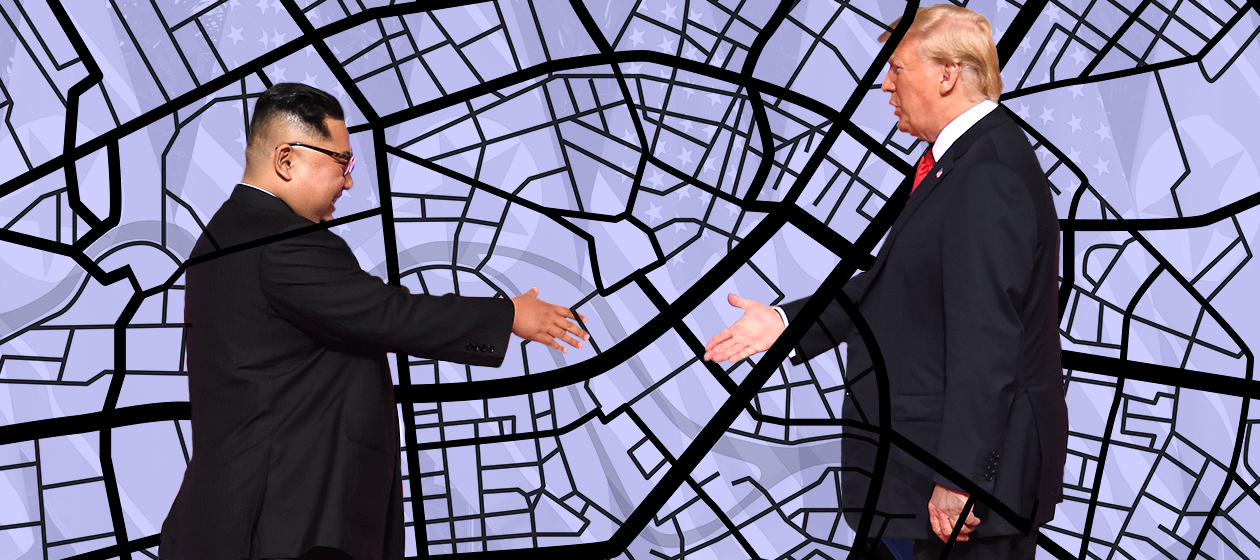A plausible roadmap to peace with North Korea
Both sides will have to make simultaneous concessions. On the count of three: One, two ...


A free daily email with the biggest news stories of the day – and the best features from TheWeek.com
You are now subscribed
Your newsletter sign-up was successful
Despite all of President Trump's positive proclamations following last month's summit with Kim Jong Un, America and North Korea remain at an impasse.
Washington continues to demand the speedy dismantling of Pyongyang's nuclear weapons and missile programs. But Kim insists that as a first step, America must halt its decades-old "hostile policy," which means officially ending the Korean War, offering full diplomatic recognition, and scrapping all sanctions.
Both sides want better relations and an end to decades of tension. The problem is who goes first.
The Week
Escape your echo chamber. Get the facts behind the news, plus analysis from multiple perspectives.

Sign up for The Week's Free Newsletters
From our morning news briefing to a weekly Good News Newsletter, get the best of The Week delivered directly to your inbox.
From our morning news briefing to a weekly Good News Newsletter, get the best of The Week delivered directly to your inbox.
What we have here, as Georgetown professor and President Trump's almost South Korea ambassador Victor Cha has pointed out, is a sequencing issue. Which side is willing to give key concessions first to start the process toward peace and denuclearization? Does North Korea make the "strategic decision," as Secretary of State Mike Pompeo seeks, to give up its nuclear warheads and missiles to gain diplomatic and economic concessions from America? Or does Trump grant Kim more concessions — in addition to a summit and three Pompeo visits to Pyongyang — to create a sense of trust that America won't invoke regime change on the hermit kingdom at some point in the future, which is Kim's big fear?
Well, why not go at the same time?
It shouldn't be that hard. Washington could propose to Pyongyang a series of confidence-building measures where each side makes a simultaneous concession. This way, there would be no posturing about who goes first, and no fear that one side's concessions won't be answered in kind.
For example, with news reports indicating that North Korea is ready to return the remains of U.S. soldiers from the Korean War, America and South Korea should use the occasion to mark a formal end to this conflict — once and for all. A ceremony could occur at the Demilitarized Zone (DMZ) that divides North and South Korea on July 27, the 65th anniversary of the signing of the armistice the technically only paused the conflict. How powerful would it be if Trump, South Korea's Moon Jae-in, and Kim all shook hands and put to rest a conflict that everyone agrees ended decades ago? Why not admit the obvious? Kim would get something he dearly desires. And Trump would come home with the remains America has sought for decades.
A free daily email with the biggest news stories of the day – and the best features from TheWeek.com
Both sides could utilize this symbolic moment as a step toward more real action. As a next step a month later, all sides could agree to a small reduction of forces along the DMZ, say 10 percent or so. All sides would be able to inspect the reductions and ensure the agreement is being enforced.
As confidence in everyone's intentions grows, North and South Korea could take a bigger step with America's help: Seoul and Pyongyang could agree to joint inspections and visits to each other's civilian nuclear facilities. This would ensure transparency on at least non-military nuclear issues and work toward building trust on all sides.
After these smaller concessions, things would get harder. At some point, North Korea would need to disclose a full list of all its nuclear facilities, the size of its atomic arsenal, the number of scientists working on the program, the amount of its fissile material, and so on. If they did this, and inspectors could enter the country to confirm their claims, America and its allies should commit to a 50 percent cut in sanctions on the regime. More sanctions would be removed once international teams began the process of removing and dismantling the North's nuclear and missile programs. Trump could even offer that as soon as the first nuclear weapon is dismantled, he would recognize North Korea as a real country and exchange ambassadors — something North Korea has wanted for decades.
Could any of this really happen? I don't know. But I do know that Pyongyang has signaled repeatedly that it won't unilaterally disarm, and Washington is hesitant to give any more concessions, so a compromise is sorely needed. A plan like this at least allows the Trump administration to truly test Kim's intentions, and see how serious he really is about giving up his nuclear weapons. It seems very much worth trying. What do we have to lose?
Harry J. Kazianis is director of defense studies at the Center for the National Interest, founded by former U.S. President Richard M. Nixon.
